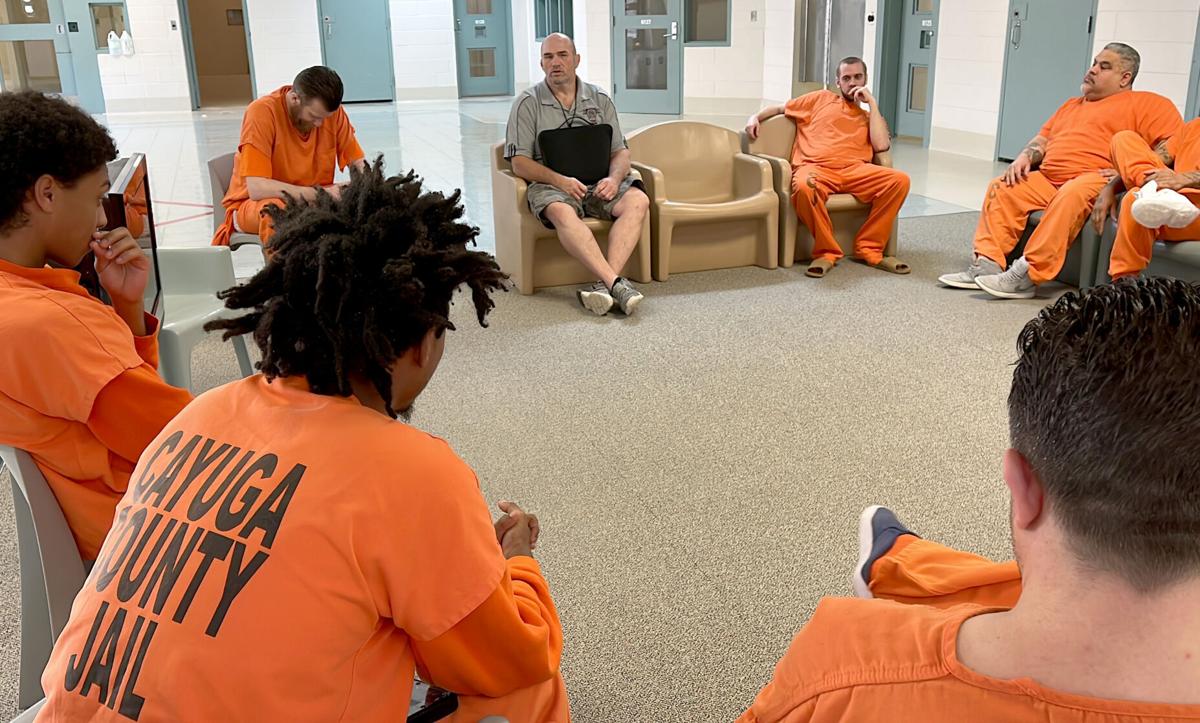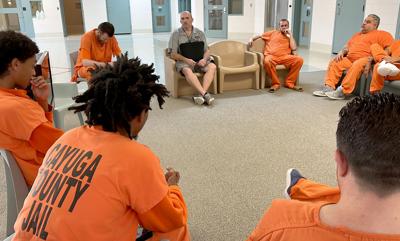Amid the New York correction officer strike, Cayuga County Sheriff Brian Schenck is addressing a shared issue of concern: how a state solitary confinement reform law has affected operations at the local jail.Â
In a Tuesday, Schenck revealed that use of force incidents have spiked since the statewide implementation of the Humane Alternatives to Long-Term Solitary Confinement Act, known as HALT. The law limits the use of solitary confinement in state prisons and county jails.Â
People are also reading…
At the jail, the Cayuga County Sheriff's Office uses force to stop an assault on another incarcerated individual or staff. According to Schenck, there were 7 use of force incidents in 2020 and eight in 2021 — the two years before HALT took effect. Use of force incidents jumped to 32 in 2022, the first year of HALT, and 54 in 2023.Â
Schenck noted there were 24 use of force incidents in 2024, a year in which the average daily jail population also decreased. Although there were fewer use of force incidents, he added that the total is "alarmingly high compared to the periods preceding the HALT implementation."Â
A similar trend has been observed in state prisons. In 2024, the state Department of Corrections and Community Supervision reported 2,450 assaults on incarcerated individuals and 1,760 assaults on staff, both records. In every year since HALT's implementation, there have been record numbers of assaults on incarcerated individuals and staff.Â
The rise in use of force incidents in state and local correctional facilities is unacceptable, Schenck said.Â
"The present circumstances necessitate intervention from our state Legislature," Schenck wrote. "The HALT Act must either be repealed or highly revised to mitigate concern that presents a daily risk to both our custody personnel and inmates."Â
It's unlikely that the Democratic-led state Legislature will repeal HALT. However, there could be changes to the law.Â
In an email to ÓĐÁĎşĐ×Ó, Schneck provided his suggestions. He said the law needs to be amended "to allow for longer periods of segregated confinement" in certain situations, such as when an inmate injures or kills another inmate or staff member.Â
Other scenarios that should require longer segregated confinement sentences, according to Schenck, include compelling or attempting to compel another person to engage in a sexual act by force or threat of force, coercing another inmate through force or threat to violate a rule, leading or organizing a riot, procuring deadly weapons or contraband, or escaping or attempting an escape.Â
Schenck also supports increasing the allowable periods of segregated confinement for inmates who repeatedly commit minor infractions.Â
If the segregated confinement penalties are increased, Schenck supports prioritizing continued medical care and mental health checks for inmates. Programming and recreation should continue, he added, if the inmates are willing to participate.Â
"We need to strike a balance that allows for discipline, safety and control of the population while at the same time, providing tools and treatment to help those incarcerated that do want to be helped," he said.Â
Whether HALT is addressed during this legislative session remains unclear. During the correction officer strike, Gov. Kathy Hochul has suspended portions of the law. Without mentioning HALT, some Democratic lawmakers are calling for "substantial reforms" to improve conditions inside prisons.Â
Government reporter Robert Harding can be reached at (315) 664-4631 or robert.harding@lee.net. Follow him on X @RobertHarding.



















